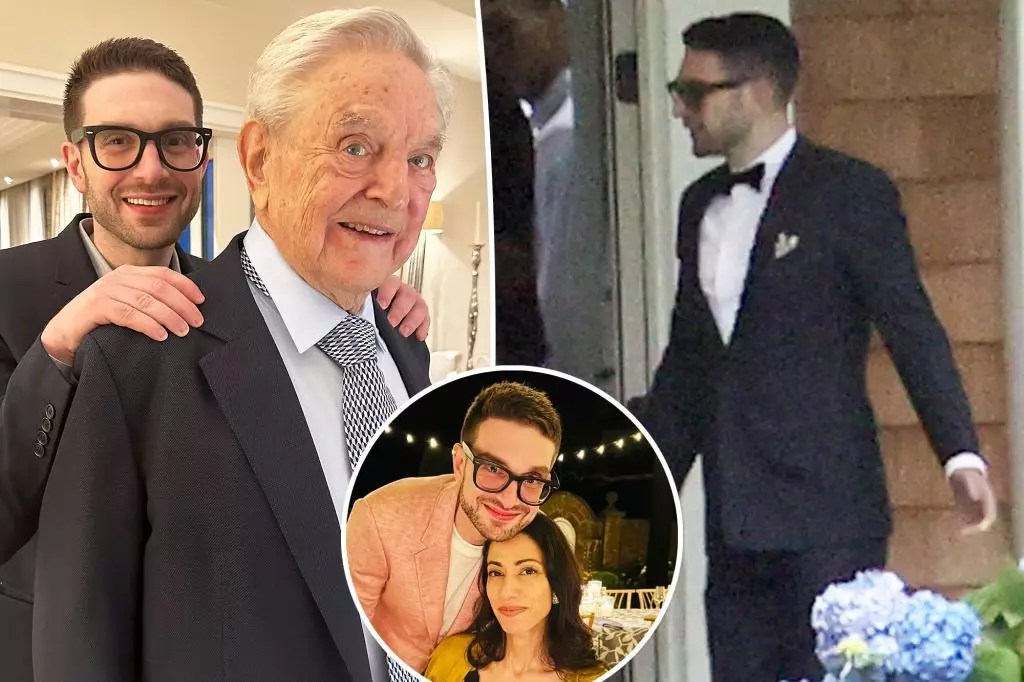In a remarkable exhibition of love and interconnected legacies, the wedding of Alex Soros, son of the billionaire philanthropist George Soros, and Huma Abedin—a key aide to former Secretary of State Hillary Clinton—unfolded over the weekend in Water Mill, New York. While the main event drew an impressive cavalcade of political and social elites, including the Clintons and other prominent Democratic figures, George Soros, 94, notably absent from the grand celebration, attended a more intimate family gathering the previous day. Such a decision raises questions, although sources confirm that the elder Soros is in good health. This lends credence to the notion that family dynamics, rather than health concerns, may have dictated his presence at the festivities, highlighting a nuanced relationship between familial ties and public persona.
A Convergence of Cultures
The dual-ceremony aspect of the wedding was skillfully designed to honor both the Muslim faith of Abedin and the Jewish heritage of Soros. The blending of these two rich traditions is significant, as it mirrors the increasingly multicultural tapestry of American society. On Friday, an intimate service officiated by a rabbi and an imam finalized the union’s religious foundations—an act of profound symbolism, showcasing tolerance and respect for diverse backgrounds. This thoughtful gesture towards inclusivity is emblematic of the growing trend among modern couples to consciously curate their weddings to reflect their unique identities and values.
The following day, the nuptials erupted into a grand celebration that was as extravagant as it was exclusive. With guests like Bill and Hillary Clinton, Kamala Harris, and other titans of political influence in attendance, it was a gathering that blurred the lines between social obligations and political alliances. The presence of these power players underscores the extent to which personal relationships intertwine with political networks, heightening the relevance of such celebrations in elevating social capital.
Culinary Delights and Star Performances
As the event unfolded, the reception dazzled guests not only with its guest list but also with its lavish menu. Attendees indulged in agnolotti pasta, chilled pea soup, American Wagyu steak, and grilled prawns—a true feast that chronicled the culinary craftsmanship often found at high-profile events. The spirit of celebration was amplified by the live performance from the iconic R&B group Boyz II Men, whose nostalgic tracks lent a sense of both festivity and familiarity. A wedding is often a personal affair, yet this one appeared to straddle both intimacy and spectacle—a testament to the Soros family’s ability to conjure an unforgettable experience.
To make the event even more memorable, the couple made headlines with their wedding attire, featuring stunning custom dresses crafted by two renowned designers, Erdem and Givenchy. Such sartorial choices highlight the way personal style can communicate values and aspirations, further solidifying the couple’s fashionable yet purposeful narrative.
The Power of Political Ties
The wedding also serves as a reminder of the intricate web of relationships that shape the political landscape in the United States. George Soros, a significant donor to the Democratic Party and activist causes, has long been under the scrutiny of conservative critics. His philanthropy, particularly during pivotal election cycles, has made him a household name synonymous with Democratic fundraising. The recent awarding of the Presidential Medal of Freedom to both George Soros and Hillary Clinton underscores their entrenched status within the American political fabric.
In this context, Alex Soros’ marriage to Huma Abedin represents not just a personal union but also strengthens the lineage of political influence vested in their families. With Alex being a young, wealthy, and socially connected heir, it appears that he embodies the next generation of political capital that could influence the future trajectories of Democratic politics.
The marriage of Alex Soros and Huma Abedin is not merely a union of two individuals; it is emblematic of a deeper narrative involving legacy, intersectionality, and political prowess that will resonate well beyond their immediate social circle.


Leave a Reply